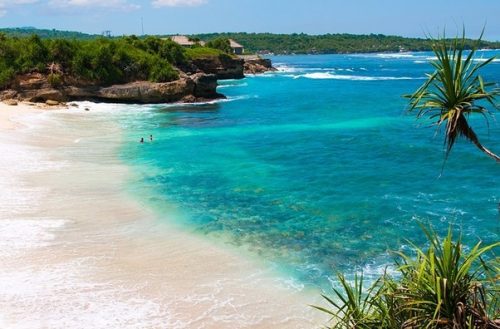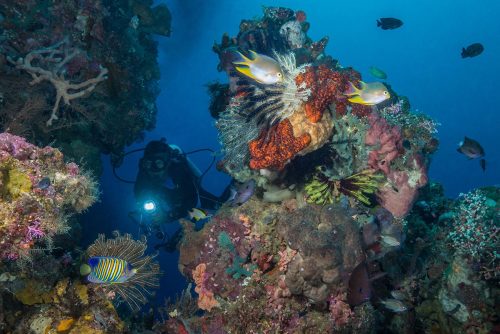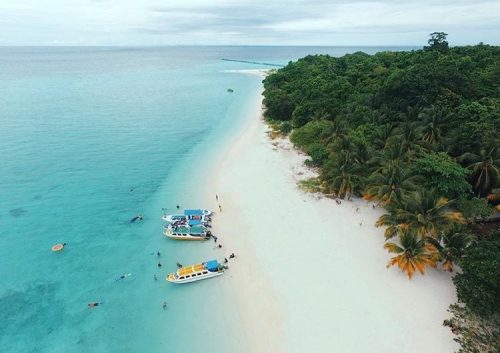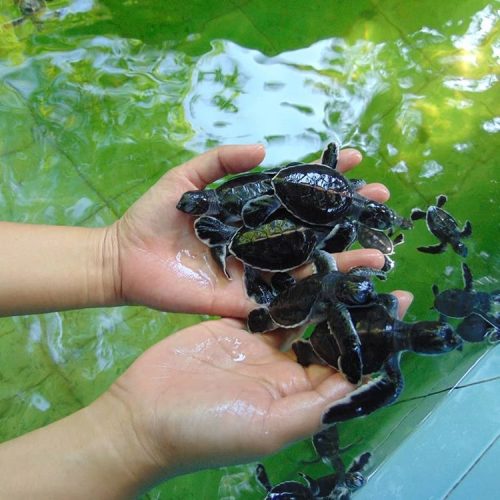The Vital Role of Coral Reefs in Coastal Economic Sustainability

Raja Ampat (Photo Credit : Tripadvisor)
Coral reefs create highly productive habitats for marine life. With coral reefs, the local fisheries sector is thriving as various types of commercial fish gather around the reef. Local fishermen enjoy bountiful catches, contributing directly to the coastal economy. In addition, fish that live on coral reefs are also a source of income through the ornamental fish trade that attracts global market interest.
Coral reefs in the Raja Ampat Islands, West Papua, create a highly productive habitat for marine life. With the coral reefs in Raja Ampat, the local fisheries sector is developing because various types of commercial fish such as grouper, snapper, and tuna gather around the reef. In addition, fish that live on Raja Ampat's coral reefs are also a source of income through the trade of ornamental fish such as clown fish and angel fish which attract global market interest.
Natural Fortress Against Marine Abrasion
Coral reefs not only have direct economic value through the fisheries sector, but also provide very important indirect ecosystem services. Physically, coral reefs act as natural fortresses, protecting coastlines from erosion and stormy seas. The sustainability of coastal infrastructure and surrounding human settlements depends heavily on the protection provided by coral reefs.
Coral reefs in Kuta Beach, Bali, not only have direct economic value through the fisheries sector, but also provide very important indirect ecosystem services. Physically, the coral reefs in Kuta act as natural fortresses, protecting the coastline from erosion and stormy seas. The sustainability of the surrounding coastal infrastructure and human settlements, including hotels and restaurants that are an important part of Bali's tourism industry, depends heavily on the protection provided by the coral reef.

Kuta Beach Bali (Photo Credit : Tripadvisor)
Thriving Sustainable Tourism
The beauty of coral reefs is also a major attraction for the tourism industry. By offering unforgettable diving and snorkelling experiences, coral reefs attract tourists from all over the world. Revenues from this tourism sector not only contribute directly to the local economy, but also create incentives for coral reef preservation. Awareness of sustainability is key to maintaining this tourism attraction.
The beauty of coral reefs in Bunaken National Park, North Sulawesi, is also a major attraction for the tourism industry. Offering unforgettable diving and snorkelling experiences, Bunaken's coral reefs attract tourists from all over the world. This income from the tourism sector not only contributes directly to Manado's local economy, but also creates incentives for coral reef preservation. Awareness of sustainability is key to maintaining this tourism attraction.

Bunaken National Park (Photo Credit : Artvisuell)
Conservation Challenges and Efforts
While the role of coral reefs is significant in supporting coastal economic sustainability, major challenges also lurk. Climate change, pollution, and unsustainable fisheries practices can damage the balance of coral reef ecosystems. Therefore, sustainable conservation efforts, including prudent management and protection of the environment, are key to ensuring that coral reefs continue to provide long-term benefits for the well-being of local communities and the sustainability of the global economy.
Although the role of coral reefs on Derawan Island, East Kalimantan, is very significant in supporting coastal economic sustainability, major challenges also lurk. Climate change, pollution, and unsustainable fisheries practices can damage the balance of coral reef ecosystems in Derawan. Therefore, sustainable conservation efforts, including wise management and protection of the environment, are key to ensuring that coral reefs in Derawan continue to provide long-term benefits for the well-being of local communities and the sustainability of the global economy.

Turtle Conservation, Derawan Island (Photo Credit : Beborneotour)

Turtle Conservation, Derawan Island (Photo Credit : Beborneotour)
Conclusion
Coral reefs are not only a stunning underwater beauty, but also a pillar of coastal economic sustainability. By understanding and appreciating its important role, we can jointly safeguard and conserve coral reefs, ensuring that these underwater riches continue to benefit future generations. Through sustainable approaches, coral reefs will continue to be an invaluable and resilient coastal economic force.

